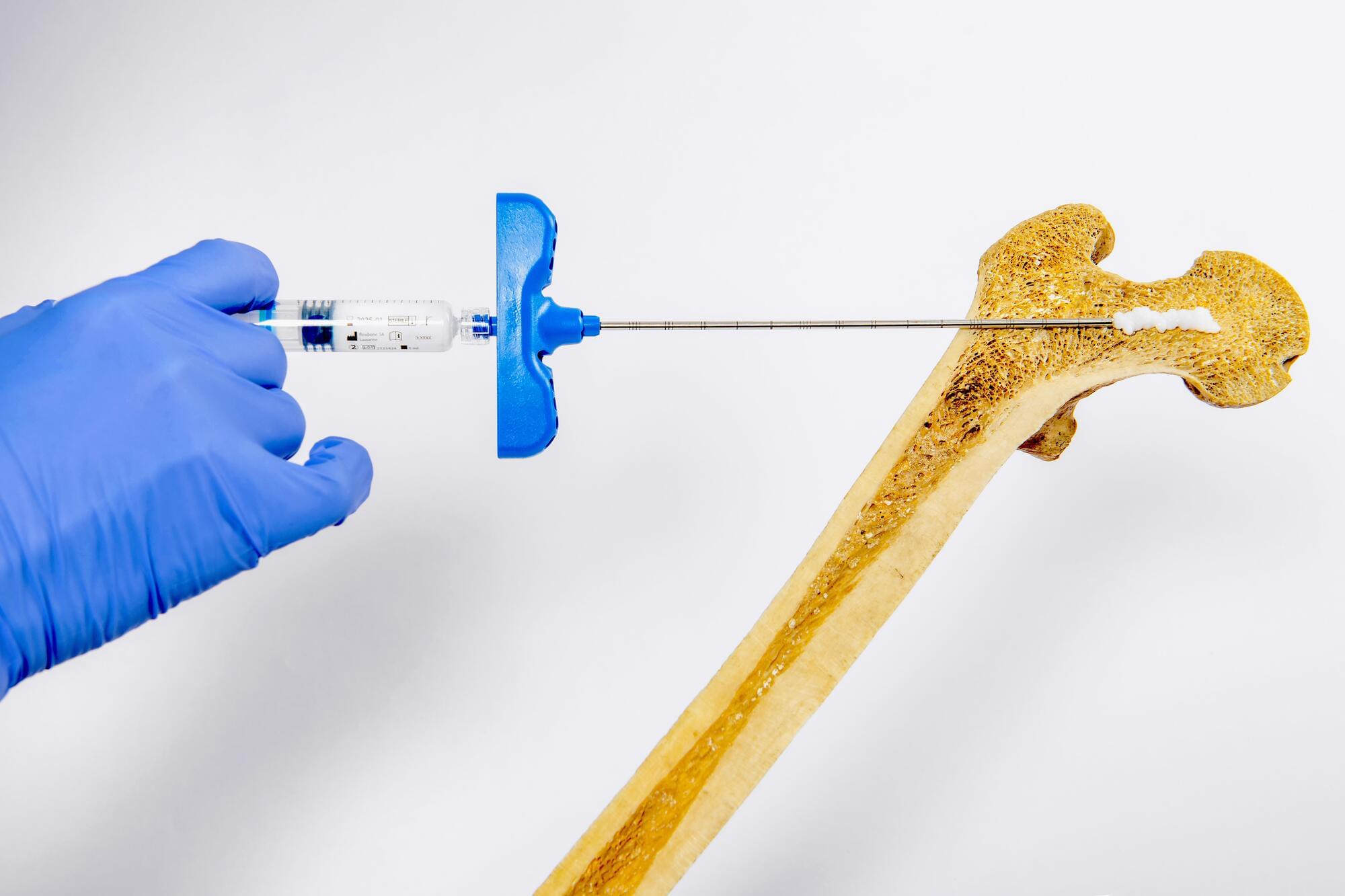The announcement confirms one of two rumors that circled the internet this week. The other was about superintelligence.



Osteoporosis is typically treated with orally administered drugs, which may take up to a year to have a noticeable effect. A new injectable hydrogel, however, is claimed to drastically boost bone density in as little as two weeks.
The disease occurs when there’s an imbalance between a person’s osteoblasts – which are bone-building cells – and their osteoclasts, which are bone-degrading cells.
Ordinarily, osteoclasts serve a beneficial function by reshaping bones so they become stronger over time. When those cells outnumber the osteoblasts, though, there’s an overall loss of bone tissue, resulting in weaker, more fragile bones.
As long as you have problems posting, I would recommend using a “throwaway” account to do your posting so you never lose your main account. A few months ago, I actually got 2 of my “throwaway” accounts UNBANNED. It is cool when you end up gaining accounts instead of losing them.
S timeline but they almost never complain recently.
The weekend release of the US Central Intelligence Agency (CIA) report favouring a laboratory leak as the likely origin of COVID-19 – albeit with “low confidence” – has reignited a vitriolic debate.
On the one side of the divide are those who argue that SARS-CoV2, the virus causing COVID-19, originated from a lab leak from the Wuhan Institute of Virology (WIV) that was studying coronaviruses in bats.
Some researchers who favour the lab-leak thesis argue that the virus contains unusual features that indicate it may have been genetically modified by humans. These focus on the virus’s furin cleavage site, a strange feature on the spike protein of the virus that is not present in other coronaviruses, that cast doubt on whether the virus had evolved naturally.


The Theory of Relativity, published in 1905 by Albert Einstein, postulated the existence of gravitational waves—oscillations of the space-time fabric—and more than a century later, we have irrefutable evidence of it. Now, a new study has managed to find clear indications of relativistic procession in the orbits of two colliding black holes.


The immune system is a marathon, not a sprint.
New research reveals stem-like T cells that help fight disease longer—a breakthrough for cancer treatments and vaccines. Discover more via Pursuit → unimelb.me/3EnoujK
It’s a reminder that, much like training for a race, scientific discovery demands persistence, teamwork and a clear goal.
While more work is needed to translate these findings into real-world applications, harnessing the unique strengths of stem-like T cells and their regulation paves the way for innovative treatments that could redefine how we tackle chronic diseases and cancer.
This study is a collaborative effort between the Doherty Institute, the Peter MacCallum Cancer Centre, La Trobe University, Northwestern University (USA), the Olivia Newton-John Cancer Research Institute, the University of Birmingham (UK) and the University of Melbourne.
Step into the mind of paranoia and misinterpretation with The Eyes Have It by Philip K. Dick, a sharp and satirical science fiction short story from 1953. Known for his groundbreaking work in speculative fiction, Dick delivers a humorous yet eerie take on how easily language can be misunderstood—leading to wild and absurd conclusions.
The story follows an imaginative reader who, while casually going through a book, begins to suspect that it contains hidden proof of an alien invasion. Everyday idioms like \.

Some scientists think that dark energy could be a sort of defect in the fabric of the universe itself; defects like cosmic strings, which are hypothetical one-dimensional “wrinkles” thought to have formed in the early universe.
Some scientists think that dark energy isn’t something physical that we can discover. Rather, they think there could be an issue with general relativity and Einstein’s theory of gravity and how it works on the scale of the observable universe. Within this explanation, scientists think that it’s possible to modify our understanding of gravity in a way that explains observations of the universe made without the need for dark energy. Einstein actually proposed such an idea in 1919 called unimodular gravity, a modified version of general relativity that scientists today think wouldn’t require dark energy to make sense of the universe.
Dark energy is one of the great mysteries of the universe. For decades, scientists have theorized about our expanding universe. Now, for the first time ever, we have tools powerful enough to put these theories to the test and really investigate the big question: “what is dark energy?”
In recent decades, the power of technology has been advancing at an exponential rate. For how much longer can this trend continue, and where will we be when it comes to an end?
This video is a clip from AlwaysAsking.com Episode 3: \.